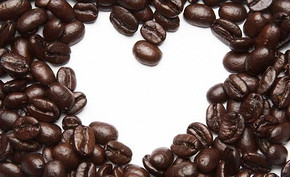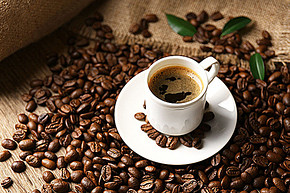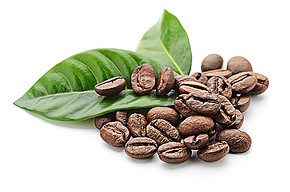Introduction of Kopi Luwak planting areas in Yunnan
Pay attention to coffee reviews (Weixin Official Accounts vdailycom ) and find a beautiful cafe to open your own shop
Cat poop coffee, Indonesia. In the early 18th century, the Dutch established coffee plantations in the Indonesian colonies of Sumatra and Java, and prohibited the locals from picking and eating their own coffee fruits. Indonesian locals accidentally discovered that civet cats love to eat these coffee fruits and will expel the beans intact when defecating.
Civets eat only the sweetest beans, which is a natural selection in itself, and second, locals have found that the beans ferment in the cat's stomach and produce coffee that tastes better than regular coffee. The delicious cat feces coffee gradually became famous and became a hot commodity in the international market.

Coffee is produced in our country.
In 2013, Yunnan Province began to produce cat feces coffee. Cloud production of civet (kopiluwak) coffee, is a small coffee species in Yunnan. Its full-bodied fruity aroma mixed with a penetrating musky smell gives a pure, delicate, supple feeling; the entrance is silky comfortable, smooth, sweet, with a fruit acid taste; the fragrance is special and penetrating. Cloud civet coffee is produced in Lujiangba, Gaoligong Mountain, Baoshan, Yunnan Province, where there are 3 wild civet coffee collection areas in 2013. Yunnan produces only 50 to 100 kilograms of this coffee every year, which is very precious. Yunnan civet coffee collection is relatively difficult, Yunnan wild civet is widely distributed in coffee growing areas, staff carefully collect civet feces from the coffee bush, and obtain coffee beans, after washing, deodorizing, drying, and finally roasted by qualified coffee roasters. It is estimated that only about 100 kg of wild civet coffee can be collected in Yunnan in 2013. In 2013, Yunnan also artificially raised civet cats to get coffee beans.
Coffee and Human Health
Whether coffee affects health is a topic of great concern to many people and has been debated among scientists for years. But so far, scientific research has found no conclusive evidence that moderate coffee consumption is harmful to human health. Between 1970 and 1980, the results of research in this area were generally negative. Widespread media coverage has made people uneasy about caffeine in their diet. By the 1990s, thanks to more rigorous testing procedures and better understanding of other aspects, such as alcohol consumption, exercise habits and smoking, these studies had been able to clear up some of the unresolved controversies in previous studies. In particular, it has been able to provide a lot of new knowledge about caffeine and health.
Death Wish Coffee
Death Wish Coffee is one of the world's strongest coffees produced by a coffee producer in New York, USA. It is called "strongest" because it contains four times the caffeine content of ordinary coffee beans. Brown, a coffee shop owner from New York, USA, has developed a coffee called "Death Wish". The package is printed with skulls and is known as "the most refreshing in the world". It contains four times as much caffeine as regular coffee and comes with a health warning that limits drinking to two cups a day. Some data also showed that searches for the keyword "death wish" suddenly rose by 110.2% recently. Just by listening to its name, one could tell how domineering it was. It was definitely not something ordinary coffee could compare to. Death Wish indeed had a bitter taste, and most people would not be able to accept it, but it was not as exaggerated as the legend that "one would want to die after drinking it." More suitable for coffee lovers who like heavy taste. Brown, a coffee shop owner from New York, USA, has developed a coffee called DeathWish, which is packaged with a skull and is known as "the most refreshing in the world." It contains four times as much caffeine as regular coffee and comes with a health warning that limits drinking to two cups a day. Brown, the inventor of the coffee, threatened to refund customers if they tasted it and found it unworthy of the name. Is coffee addictive?
A university in England asked 300 volunteers to participate in the study, divided coffee fans and non-coffee fans into two groups, stopped drinking coffee 16 hours before the test, and observed their concentration changes. After 16 hours of coffee withdrawal, only coffee aficionados were allowed to drink coffee, and non-coffee aficionados were not allowed to drink coffee, but the results showed that coffee drinkers had the same concentration as non-coffee aficionados, which was only normal. Therefore, it is estimated that even non-coffee drinkers who drink coffee will not improve their concentration or productivity. The researchers said that the human body stores adenosine, which slows down the reaction, and feels "refreshed" after drinking coffee because caffeine stops adenosine from entering cells and makes it less likely to feel sleepy. Caffeine also narrows blood vessels, speeding up blood flow and causing headaches, the study said. Some coffee lovers who don't drink coffee experience headaches, irritability, muscle tension and nervousness.
Important Notice :
前街咖啡 FrontStreet Coffee has moved to new addredd:
FrontStreet Coffee Address: 315,Donghua East Road,GuangZhou
Tel:020 38364473
- Prev

Evaluation of three major coffee brands: Starbucks, Nestl é and Kopi Luwak
Following Cafe (official Wechat account vdailycom) found that Cafe Beautiful opened a small shop of its own. For those who stay up late to work overtime or love to study, the coffee that ensures their energy and energy every day is the right solution. For office workers who work from nine to five, fast and convenient canned coffee drinks are the best choice! In terms of taste, the canned coffee we drank in those years
- Next

Kopi Luwak brewing method steps authentic Indonesian cat shit coffee beans how to brew good?
Follow the caf é (Wechat official account vdailycom) found that the beautiful cafe opened a small shop in Sumatra, Indonesia, away from the hustle and bustle, sunny all the year round, pure air, suitable humidity, fertile soil, due to the unique geographical environment and mild climate, the health of Sumen waxing Islands
Related
- Detailed explanation of Jadeite planting Land in Panamanian Jadeite Manor introduction to the grading system of Jadeite competitive bidding, Red bid, Green bid and Rose Summer
- Story of Coffee planting in Brenka region of Costa Rica Stonehenge Manor anaerobic heavy honey treatment of flavor mouth
- What's on the barrel of Blue Mountain Coffee beans?
- Can American coffee also pull flowers? How to use hot American style to pull out a good-looking pattern?
- Can you make a cold extract with coffee beans? What is the right proportion for cold-extracted coffee formula?
- Indonesian PWN Gold Mandrine Coffee Origin Features Flavor How to Chong? Mandolin coffee is American.
- A brief introduction to the flavor characteristics of Brazilian yellow bourbon coffee beans
- What is the effect of different water quality on the flavor of cold-extracted coffee? What kind of water is best for brewing coffee?
- Why do you think of Rose Summer whenever you mention Panamanian coffee?
- Introduction to the characteristics of authentic blue mountain coffee bean producing areas? What is the CIB Coffee Authority in Jamaica?

